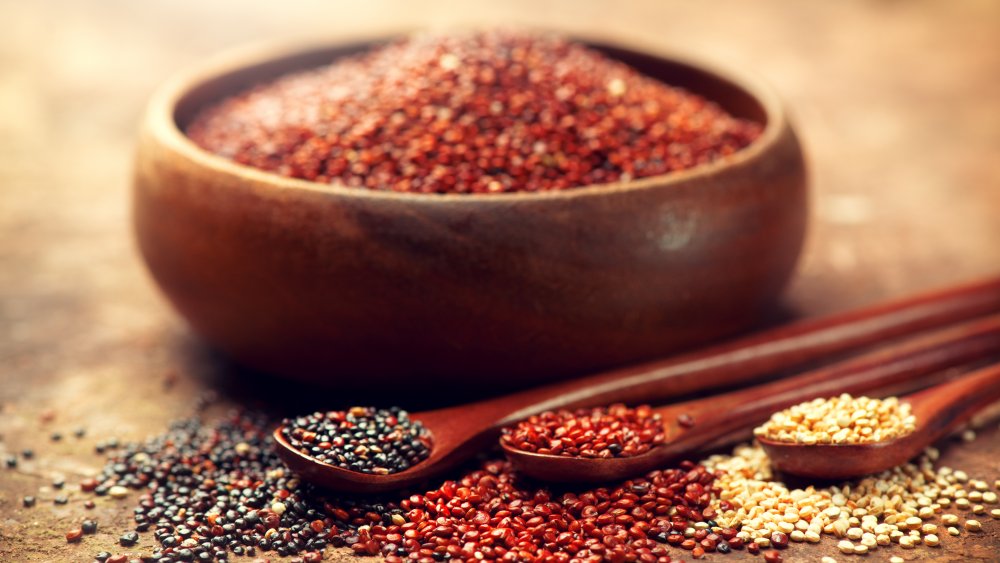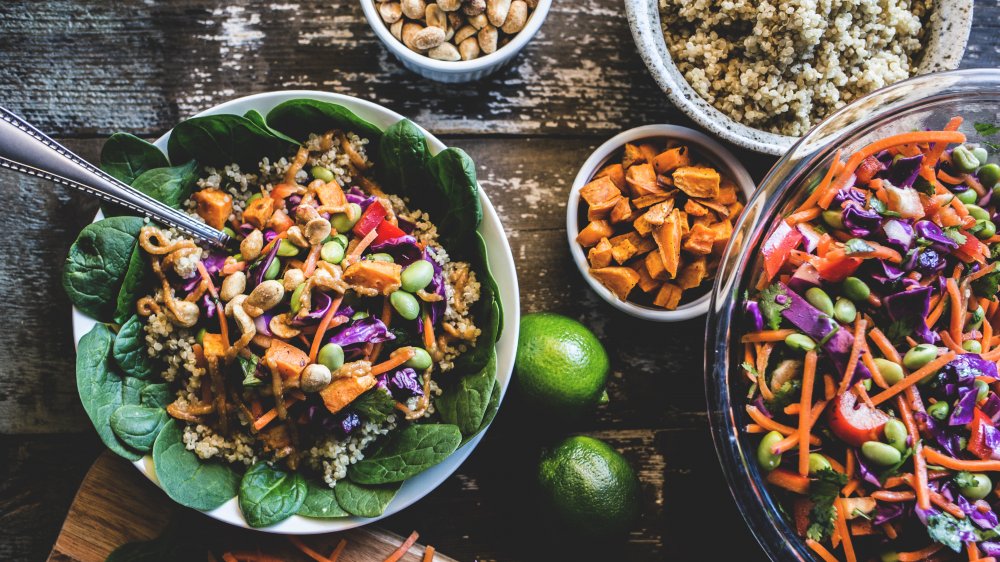When You Eat Quinoa Every Day, This Is What Happens To Your Body
It comes in a rainbow of colors, the most popular of which are red, white, yellow, and black. And while it's technically an edible seed, quinoa (pronounced keen-wah) is considered to be a whole grain, rich in plant protein and fiber, according to nutrition and diet experts. Unlike other plants, quinoa contains all of the nine essential amino acids our bodies need, which makes it a complete source of protein. And even better, because it's naturally gluten free, quinoa can also be enjoyed by people who with celiac disease (via Harvard School of Public Health).
Healthline reports that a cup of cooked quinoa delivers 222 calories, 39 grams of carbohydrates, and 4 grams of fat. It also contains 8 grams of protein, 5 grams of fiber, and a significant amount of the RDA for minerals, including manganese (58 percent), magnesium (30 percent), and phosphorous (28 percent), as well as folate, copper, iron, zinc, and potassium.
Quinoa has proven health benefits
According to Healthline, though quinoa is not technically a cereal grain, it is considered a whole-grain food, and in a journal article published in BMC Medicine, researchers confirmed that the consumption of whole grains with minerals and antioxidants had health benefits that included a lowered risk of chronic disease, specifically but not including type 2 diabetes, cardiovascular disease, and certain types of cancers. The study participants were asked to report their diet and portion size over 12 months, and it found that a diet with two servings a day of whole grains was associated with a 21 percent decrease in the risk presented by type 2 diabetes. High consumption of whole grains have also been linked to a reduced risk of developing digestive cancer.
Whole grains like quinoa contain 25 percent more protein than refined grains like white rice, or the grains used to make white flour pasta. As a result, according to Harvard Public School of Health (via The Telegraph), eating a daily bowl of quinoa, which also has more nutrients than your average grain, could help you live longer by cutting the risk of developing cancer, heart disease, diabetes, and respiratory disease by as much as 17 percent.
Now who's adding quinoa to their grocery list?

